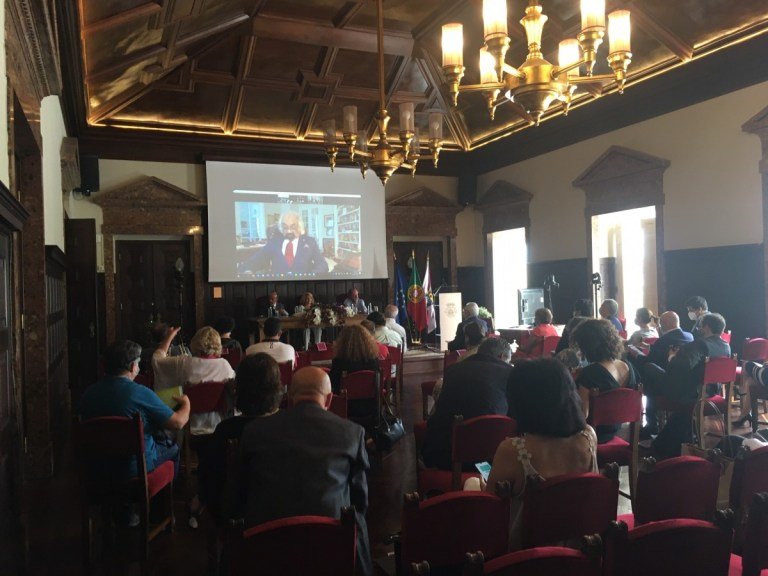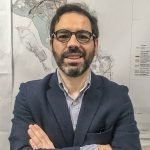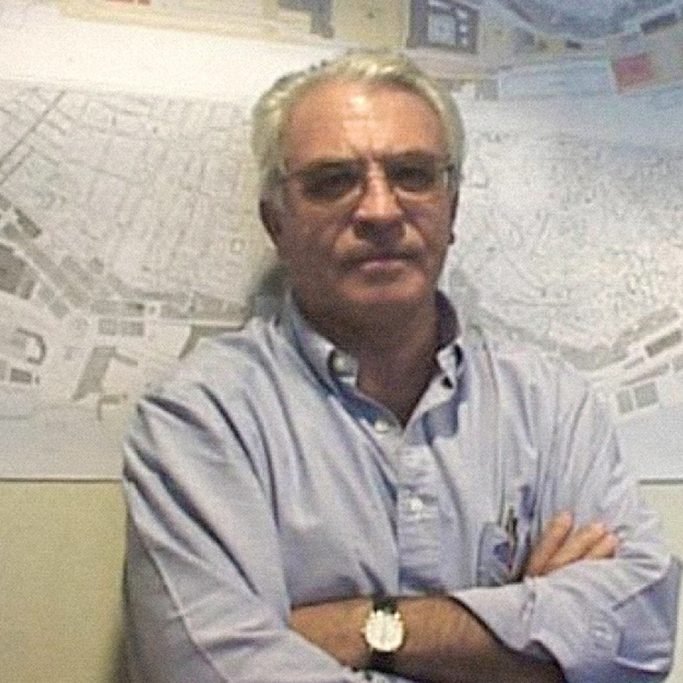The “Knowledge City” Strategic Plan began to be outlined, in which accessibility, ports and the new airport are described as fundamental
The Consultative Council of “Cidade do Conhecimento” met in the Setúbal Chamber to begin the definition of the Strategic Plan (PECC) of the project that will be built in Vale da Rosa where, in the early 2000s, the “Nova Setúbal” was projected. The first phase of the PECC is being dedicated to collecting contributions to the design of the project and the scientific, technological and cultural areas that it should include, with investor Sam Pitroda reaffirming the ideal of “finishing the project within the expected target: three years ”.
Something he hopes to achieve with the contributions of all the partners of the advisory council, including the Port of Setúbal and Sesimbra Administration (APSS), the Port of Lisbon Administration (APL) and the Lisbon Regional Coordination and Development Commission and Tagus Valley (CCDRLVT).
From his office in Chicago, the patron who dedicates part of his activity to the financing and development of cutting-edge technology projects, “thanked the political support of the Setúbal Chamber who received this project“ with open arms ”, recognizing its importance “For the economy and development, as well as for the future of people’s quality of life”.
A “political will”, without which Sam Pitroda says that “it would never be possible to bring this new city to a successful conclusion”. The investor also highlighted the country and the region “due to the mild weather, culture, talent and good basic infrastructure available, conducive to the leap in development”, which he aims to bring to the region.
Gustavo Miedzir, president of Pitroda Group Portugal, also highlighted the fact that an idea such as “Knowledge City can only be achieved with critical thinking made available to the possible future”. And he referred to the strength of “several factors, to reach the ideal moment”. Stressing in this way the context that Portugal lives, with the perspective of a new airport and new associated accessibility.
The mayor of Setúbal, Maria das Dores Meira, also hopes that the consultative council meetings will allow “to gather a set of ideas from which the project will be designed, which aims to create an environment conducive to innovation and the exchange of knowledge” .
As for the immediate adhesion to the project, Dores Meira clarified that “the concept of the“ City of Knowledge ”fits perfectly into the Setúbal 2026 Strategic Development Plan (PEDS) and the reason for the new Municipal Master Plan (PDM), currently in the development phase. public discussion ”.
According to the mayor, in PEDS the need for a “development, intelligent, sustainable and inclusive of Setúbal”, based on foreign investment, “that marks the difference both at regional and national levels” was clear.
The strategic vision of the new PDM aims to give Setúbal a strong influence on the development of port, industrial and logistical activities, as well as tourism.
Sérgio Barroso, team coordinator of the Center for Studies on Regional and Urban Development (CEDRU) presented the first phase of the Strategic Plan with an approach of “respect for Setúbal and all those who live here”. And he stressed that “if Portugal were the best place in the world to invest, we would not be on the tail of Europe, nor were we one of the capital regions with the worst economic performance in the last 20 years”.
Despite “we have value and skills, we need to do much more” and “take on this project with transparency”, knowing how to take from this new city “the best you can give us”, defended Sérgio Barroso. Even because, he recalls, “the Lisbon region has not received a project of this magnitude for over 20 years”.
And the reason why this did not happen is, in his opinion, “the lack of critical mass and capital to sustain this global vision”. Reason for which, the first phase of the Strategic Plan will be to give promotional force to the project, at international level. “Without this promotion, the project will not be feasible”.
Secondly, the viability of the city of Setúbal and the Metropolitan Area of Lisbon will come as an ideal territory.
“For this, it is essential to have the city, region and country working together”, implementing the necessary infrastructures, such as “a new airport in Alcochete and understanding, in the next 15 to 20 years, which will be the cutting-edge scientific areas that are of interest to this new city ”.
APSS wants to strengthen port links to academic training and scientific research
During the meeting, Lídia Sequeira, chairman of the APSS board of directors, reaffirmed the importance of taking over the port areas as elements that enhance the creation of start up’s associated with energy and robotics.
“For this Setúbal there is this seafront, this large shipyard, which has more conditions than other port cities in Europe”, she points out.
A possibility about which Lídia Sequeira is sure, “must be listed with study and creation in these areas, with the development of research in engineering”, as these are the ports of the future “, she concluded.
Dream of the new city was signed in December
The PECC – Strategic Plan for the “City of Knowledge” comes after the signing of the collaboration protocol between the Chamber of Setúbal and The Pitroda Group in December 2019.
Sustainability has been the key word of this project since the beginning, which in this way stands out in the face of “Nova Setúbal”, which should occupy the same place in Vale da Rosa, but only with housing and a new stadium for Vitória Futebol Clube.
“This project would leave that area as a dormitory, far from access and without added value for its profitability”, explained in December the architect Fernando Travassos, who is working with the executive of Câmar de Setúbal, The Pitroda Group, in the development of this project.















Leave a Reply